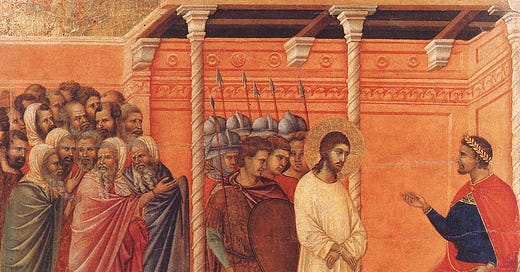Scripture
Old Testament: Isaiah 52:13—53:12
Psalter: Psalm 22
Epistle: Hebrews 10:16-25 or Hebrews 4:14-16; 5:7-9
Gospel: John 18:1—19:42
___
Prayer
Grieving God, on the cross your Son embraced death even as he had embraced life: faithfully and with good courage. Grant that we who have been born out of his wounded side may hold fast to our faith in him exalted…
Keep reading with a 7-day free trial
Subscribe to Faith Seeking Understanding to keep reading this post and get 7 days of free access to the full post archives.




